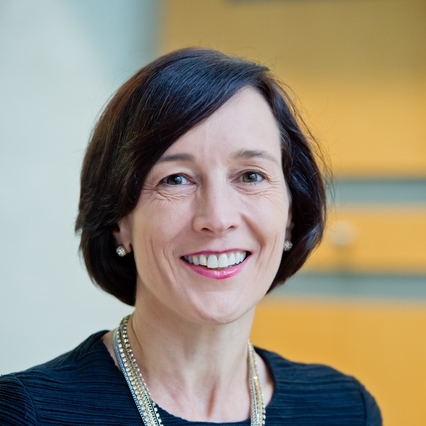
Q&A with Christine Ritchie, MD, MSPH, FACP, FAAHPM
June 5th, 2020
Christine Ritchie, MD, MSPH, is the Kenneth L. Minaker Chair in Geriatrics and Director of Research for the Division of Palliative Care and Geriatric Medicine at Massachusetts General Hospital. She also co-leads the NINR-funded Palliative Care Research Cooperative and the national Home-based Primary Care and Palliative Care Consortium.
Tell us about your background.
I was born and raised in South Korea. I was very independent and loved traveling by myself around the country. I had tremendous freedom as a kid. I went to the only expat boarding school in the country starting at age eleven. My hobbies included voracious reading, photography, volleyball, editing our high school yearbook, piano and oboe. I went to Davidson College for undergraduate school. I chose it by reading through its written description (pre-internet). Since I was coming directly from Korea, my first day on the college campus was the first day of my first year (freshman) orientation. I ran cross-country in college and have loved running ever since. My work, life and family commitments have enabled me to live in seven different states: from NC for medical school (UNC); to AL for residency, fellowship and faculty (UAB); to MA for research/research training; to KY for palliative care training, family support, and geriatrics-palliative care program development; back to AL (to direct the UAB Center for Palliative and Supportive Care); to CA (UCSF), and now happily, back to Massachusetts.
Why did you decide to work in palliative care?
Before I went to medical school, I spent a term working in a small rural hospital in an isolated, underserved part of southeastern Kentucky where the mountains closed in on narrow valleys and poverty was the norm. I worked with an amazing nurse practitioner, Kim, who drove us around in her 4-wheel drive jeep though rugged dirt roads to the homes of persons needing care. I had been accepted to medical school but had nominal clinical training. Nevertheless, Kim called me her “student doctor” and dropped me off at a home of a woman dying of cancer. Kim left me at this woman’s home with instructions to “be with these folks while I go take care of more urgent things.” As I entered the home, the dying woman was there in a hospital bed in the living room with her large family all around her. This family who did not know me welcomed me into the intimacy of their home and allowed me to bear witness to the beauty and pain of this final journey. The honor of being with this woman and her family during that sacred time had a profound impact on me. From that point on I was drawn to the care of those who were seriously ill.
Tell us about your area of focus. What draw you to this?
As a geriatrician and a palliative care physician, I have been become committed to developing and evaluating care delivery models that improve quality of life for older persons with serious illness(es). Our current healthcare system is broken and fragmented. It often does not serve persons with multiple chronic conditions, functional impairment or dementia well. We have the opportunity to build and test care delivery models that take into account what is important to these older adults, including their sense of meaning and purpose, their function and their relationships. In recent years, I have been particularly captivated by our opportunities to improve the well-being of persons with dementia along with their caregiver. As a caregiver for my father when he had dementia, this work is important to me personally and professionally.
What’s your favorite part of your job?
I love working in teams that are focused on a project that will genuinely improve the lives of others. I enjoy mentoring junior faculty and trainees and supporting their growth and development.
In your spare time, what do you like to do for fun?
I love to be outdoors in nature, hiking, running, biking, and engaging in photography. I love good company, good conversation and good food.
